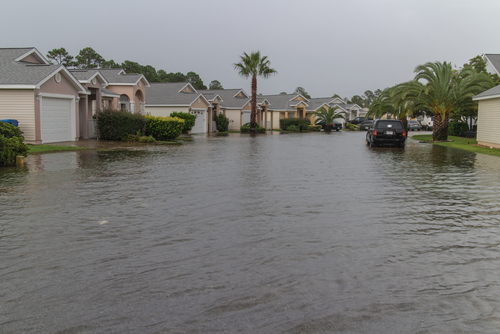Although Florida enjoys year-round warm weather, it also frequently experiences tropical storms and hurricanes during the hurricane season that lasts from June 1 to November 30 each year. A major hurricane, defined as a Category 3 or greater hurricane, makes landfall in Florida at least once every few years. If you are a homeowner living in Florida, you need to understand how the insurance process works in the event you suffer property damage from a hurricane or tropical storm.
Types of Damage Claims
Although Florida law does not require homeowners to purchase insurance for their property, many homeowners in the state do carry coverage, especially when they have a mortgage on their home as insurance coverage is often required by the bank.
Unfortunately, insurers do not offer a specific “hurricane” insurance for residential property. Instead, homeowners will need to make sure that their homeowners’ insurance policy includes coverage for all the types of damage that can be caused by a hurricane. Homeowners should also confirm that their policy limits are sufficient to cover the full cost of rebuilding their home and replacing their possessions inside the home.
In addition to normal property coverage provided by homeowners’ insurance, homeowners may need to purchase additional coverages such as:
- Windstorm damage coverage: If a homeowner’s policy expressly excludes damage from named windstorms (such as tropical storms or hurricanes), windstorm insurance will provide coverage for repair or replacement of damaged roofs, building exteriors, and even separate accessory structures like garages or sheds.
- Flood insurance: Most homeowners’ policies expressly exclude coverage for damage caused by a flood or floodwaters. Therefore, homeowners in Florida, particularly near the coast and in low-lying areas, should strongly consider purchasing flood insurance. Even an inch of water getting into the home can cause tens of thousands of dollars in repair costs.
What Is Involved in the Process of Filing a Claim after a Hurricane?
The property damage claims process after a hurricane begins by notifying your insurer that your home has suffered damage. If you are unsure about what coverage you have in your policy, you should take the time to review the terms of your policy. Reviewing the policy is also important as most homeowners’ insurance policies require property damage claims to be filed within a short period of time. You can also contact your insurer, who can walk you through what needs to be done to formally file your property damage claim with the insurance company. Once your claim is filed, your insurer has 14 days to acknowledge receipt of your claim, after which they will send an adjuster to begin an investigation.
Other steps you should take when filing a property damage claim include:
- Documenting all damaged property, including what portions of your home have sustained damage as well as the objects inside your home that have been damaged or destroyed.
- Take pictures of all the damage, especially if you later need to begin cleaning up to try to make your home liveable while you conduct repairs.
- Carefully review the proof of loss document provided by the insurance adjuster. This document will serve as the definitive list of what property has been damaged and what the insurance company will agree to cover or pay money for.
- Evaluate repair companies. Your insurer will try to get you to use their preferred contractor to minimize costs, but you should insist on working with an experienced and reputable company.
Remember Your Deductible
Homeowners’ insurance providers in Florida all require homeowners to have a deductible for hurricane damage. This is the amount of money that you agree to pay for damage and repairs before your insurance coverage will kick in. You can negotiate the size of the deducible, with a higher deductible resulting in lower insurance premiums. However, make sure that you can afford to cover whatever deductible you select; if you suffer damage beyond your deductible and can’t afford to cover it, your insurer may end up denying your claim.
Contact a Fort Lauderdale Insurance Lawyer to Discuss Your Case in Florida
Did your home sustain serious hurricane property damage in Florida? Right now, you need an aggressive insurance attorney on your side, fighting to get you the compensation you need, want, and deserve. The skilled attorneys at Lawlor, White & Murphey represent clients in Coconut Creek, Plantation, Pompano Beach, and Pembroke Pines, and throughout Florida. Call (954) 525-2345 or fill out our online contact form to schedule a free consultation about your case. We have an office conveniently located at 2211 Davie Boulevard, Fort Lauderdale, FL 33312, as well as offices in Pembroke Pines, Weston, Coconut Creek, Plantation, and Pompano Beach.
The articles on this blog are for informative purposes only and are no substitute for legal advice or an attorney-client relationship. If you are seeking legal advice, please contact our law firm directly

